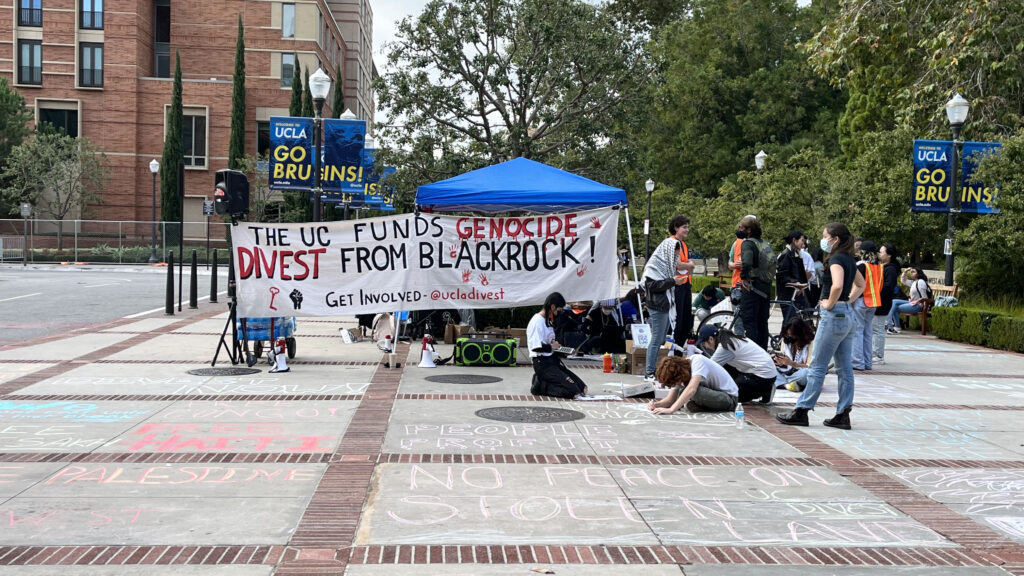During this summer, a team of students from MIT embarked on a journey to the sou …
UC’s Approach to the Complex Response in the Israel-Hamas Conflict
Carlos Changemaker

Students at colleges in California are expressing fear and distress due to a rise in Islamophobia and antisemitism amid the Israel-Hamas war. This issue is particularly tense within the University of California (UC) system, making it challenging for system officials who are trying to address student safety concerns. Over the past few weeks, UC leaders and campus chancellors have made statements about the war and their efforts to ensure student safety, but they have faced criticism for both their words and their silence.
In early November, officials from UC and the California State University were criticized by the California Legislative Jewish Caucus for not taking a more forceful stance against antisemitism on their campuses. Additionally, UCLA Chancellor Gene Block’s condemnation of what he considered to be antisemitism at an event organized by Palestinian students was met with rebuke from those students, who denied the charges and accused UC officials of having a double standard. These incidents highlight the complexities of addressing the Israel-Hamas conflict within the UC system.
To go beyond words, UC President Michael Drake recently announced a $7 million commitment to address antisemitism and Islamophobia on campuses. This investment aims to support students and alleviate their anxieties by providing emergency mental health resources, implementing new educational programs, and offering staff training, including on the topic of free speech.

According to Celene Aridin, a UC Davis student and president of the UC Student Association, the $7 million investment is a positive step. Aridin, who had urged the president’s office to provide more mental health services, emphasized that students have been deeply affected by the war and need support. Others, such as Kristen Shahverdian from PEN America, view this investment as a comprehensive approach that acknowledges the different areas where resources are needed.
The Israel-Hamas war has been ongoing, and during this time, reports of Islamophobia and antisemitism on college campuses in the United States have increased. In response, the Department of Education under President Joe Biden recently announced investigations into reports of antisemitism and Islamophobia at six colleges. Although UC campuses are not among those being investigated, they have also experienced instances of such discrimination.
Bears for Palestine, the UC Berkeley chapter of Students for Justice in Palestine, highlighted cases of assault, harassment, and threats against Muslim and Palestinian students. UC Berkeley’s chancellor, Carol Christ, also acknowledged the harassment faced by Palestinian students and their supporters. Similar reports have come from other campuses, like UCLA, where Palestinian students have experienced physical and verbal assaults.
While addressing these incidents, UC and Cal State officials have faced criticism for their response to antisemitism. The California Legislative Jewish Caucus called on them to clearly condemn antisemitism on campus. Jewish students from UC Berkeley, UC Davis, and San Jose State shared incidents of physical attacks. In one case, the university did not label an incident as a hate crime, causing concern among Jewish students.
The delicate balance between addressing the Israel-Hamas conflict and responding to the concerns of different groups has also put faculty members in a difficult position. For instance, the UC Ethnic Studies Faculty Council accused UC leadership of distorting the reality of the situation for Palestinians in Gaza and contributing to their erasure. In contrast, a faculty coalition at UCLA criticized campus leadership for not denouncing pro-Palestinian rallies on campus. The challenges faced by college leaders have been ongoing for the past six weeks, and they have often faced criticism regardless of their actions.
In light of these challenges, the $7 million investment made by UC in addressing antisemitism and Islamophobia is seen as a potential step toward supporting all students. The funds will be allocated to emergency mental health resources, educational programs, and faculty and staff training. The goal is to provide a foundation for addressing challenging speech and events on campus and to promote better understanding and combat extremism.
As for the $3 million designated for mental health resources, Aridin hopes that students will have a say in how the funds are used, as the needs may vary across different UC campuses. The investment overall is considered a positive step, even though the path forward remains challenging for college leaders.


